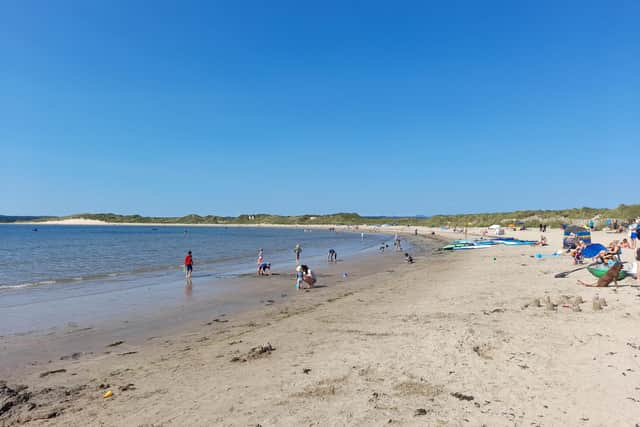New proposals to tackle the issue of short-term holiday lets will have little impact, fears Beadnell resident
and live on Freeview channel 276
This is the fifth similar consultation this Government has launched about second and holiday homes in England in recent years.
However, the proposals, even if accepted, will have little impact on the housing problems being experienced in towns and villages across the country. Currently buying or turning an existing house into a self-catering holiday let is one of the most lucrative investments available.
Advertisement
Hide AdAdvertisement
Hide AdMeanwhile in Wales, Scotland, and Northern Ireland, over the past five years, devolved governments have introduced up to 300% Council Tax on second homes, dramatically increased the number of nights holiday lets need to be let to call themselves a business, proposed introducing a Tourist Tax and/or set up a self-financing regulation scheme run by Visit NI.


Additional income from Council Tax has been strictly ringfenced to provide affordable housing or to support local facilities in the areas with the highest percentage of second or holiday homes.
Currently anyone can advertise a house in England as a holiday let without any registration or checks.
Nobody knows how many there are, where or how safe. Owners can choose to register with the local council claiming to be a business and avoid paying Council Tax or Parish Council precept. The majority can then choose to claim Small Business Rate Relief and pay no Business Rates either.
Advertisement
Hide AdAdvertisement
Hide AdUntil this month the property didn’t even have to be let out at all. Under current rules it can still stand empty or be used by friends or family for 42 weeks of the year. This provides unfair competition for professional holiday let businesses who are open year round.
Unlike private lets, which have had many of their tax allowances removed, holiday let owners can register with HMRC and claim for mortgage interest, for furniture and fittings allegedly for the property, for building improvements, to allocate the profits to either husband, wife or partner and set profits against pension contributions. Meanwhile the property continues to increase in value due to demand for it as a financial investment.
The list of properties in Northumberland which have registered as self catering holiday let businesses is already available on Northumberland County Council’s website. There were 2,792 across the county in May 2022 ranging from 256 in Beadnell to one in Mitford.
In recent years county councils have received 50% of Business Rates with the other 50% going to the Government. However, when self catering holiday lets claim Small Business Rate Relief central government reimburse local authorities for the lost income, meaning they subsidise the sector. No such compensation is available for town and parish councils.
Advertisement
Hide AdAdvertisement
Hide AdAs the number of so-called holiday let businesses increases, the number of properties contributing to the town or parish council precept, collected with Council Taxes, falls. Fewer and fewer Council Tax payers pay a larger slice of this local tax every year, even if the precept amount is not increased.
Government proposals to introduce planning permission for holiday lets will not work for many reasons. Existing properties, or those claiming to be so, will no doubt have to qualify for historic permission. Someone will have to decide how many holiday lets are too many, by street or area. There will need to be fair and transparent criteria for refusal. There will need to be a right of appeal, similar to current planning rules.
Any new scheme will no doubt be run, monitored, and enforced by the county councils who already struggle to cope with the number of current planning applications. It is unlikely the councils will receive any additional funding for what will be a bureaucratic nightmare.
Some second home owners may apply for planning permission even though they do not intend to let out their property. They would then avoid paying the 100% Council Tax premium on second homes introduced by the same government.
Advertisement
Hide AdAdvertisement
Hide AdThe solutions to the housing crisis are many and well known. The Government is aware of this from previous consultations.
Reduce the tax allowances for self-catering holiday lets to those of private landlords. These at least provide year-round accommodation for tenants; regulate the sector the same as all other tourist sectors. This could be self-financing and run by Visit England; demand all self-catering holiday let businesses are operating at least 42 weeks of the year, helping to create a much needed, year-round economy in rural and coastal areas; remove the right, introduced by George Osborne, for holiday lets to claim Small Business Rate Relief and, once again, treat them as capital purchases not commerce; when double Council Tax is introduced in areas with a high percentage of second homes, ensure the additional income is ring-fenced to benefit those communities.
Despite the government’s recommendations, this didn’t happen in Northumberland in 2012 when the then Council Tax on second homes was increased from 50% to 100%